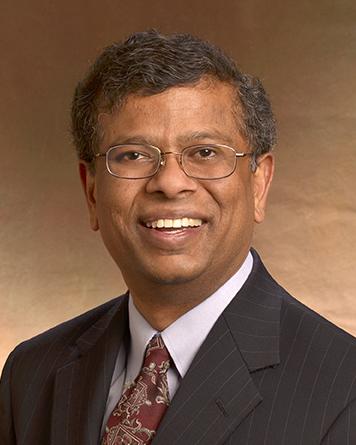event
Towards Democratization of Metal Additive Manufacturing – Role of Interdisciplinary Research
Primary tabs
Abstract: The National Science Board’s vision 2030 calls for four elements including (a) delivering benefits from research, (b) developing STEM talent for America, (c) expanding the geography of innovation and (d) fostering a global science and engineering community. In this talk, the role of interdisciplinary research at UTK and ORNL on democratization advanced manufacturing will be discussed with reference to the above goals with case studies.
In the last two decades, additive manufacturing (AM) has become a viable pathway for making metallic components for aerospace and energy applications. Although the feasibility of the AM to make complex geometric components has been demonstrated, the ability to qualify these components for critical applications remains elusive. This challenge is related to spatial and temporal variations of thermal, mechanical, and chemical signatures within a single component that are quite different from traditional manufacturing. As a result, coupon-based qualification of AM parts may not be applicable in all cases. In this talk, an overview of the existing qualification methods that are based on extensive testing, as well as, emerging interdisciplinary techniques that are based on in-situ monitoring, computational modeling, machine learning and artificial intelligence will be presented. The application of these tools will be demonstrated with case studies of qualifying metallic components produced by AM for energy and aerospace applications. The case studies will span various powder bed fusion and direct energy deposition processes for titanium, nickel, and stainless steels.
In addition, efforts to transfer these technologies to industries and robust STEM workforce development will also be discussed. Finally, the future directions to arrive at site-specific properties within AM components which is leading to the emergence of digital metallurgy as a new paradigm will be highlighted.
Bio: Sudarsanam Suresh Babu is the Governor’s Chair of Advanced Manufacturing at the University of Tennessee, Knoxville. He also serves as Professor in the Department of Mechanical, Aerospace and Biomedical Engineering with joint appointment in the Department of Materials Science and Engineering. He also serves within the Energy and Transportation division of the Energy and Environmental Sciences directorate at Oak Ridge National Laboratory.
Babu has been instrumental and part of the local and national leadership in advanced manufacturing institutes to enable research and education on lightweight metals manufacturing, 3D printing and composites. He was the founding director of the National Science Foundation Industry–University Cooperative Research Center which focuses on joining and manufacturing and is leading the Office of Naval Research’s Multidisciplinary University Research Initiatives program on fundamentals of additive manufacturing. He is a fellow of American Association for the Advancement of Science, ASM International and American Welding Society.
Babu’s career spans basic and applied research in physical metallurgy, advanced manufacturing, additive manufacturing, as well as computational materials modeling. He has published more than 230 papers relevant to material science and manufacturing. He is also involved in the application of state-of-the-art characterization tools including atom probe tomography, synchrotron diffraction and neutron diffraction for understanding materials behavior. In his current role as the Director of the Bredesen Center, Babu is interested in the democratization of science and technology across our country at the intersection of energy, data and computing.
Babu started his career as research associate in the Institute for Materials Research, Sendai, Japan and held a senior level technology leader position in the area of engineering and materials at Edison Welding Institute, Columbus, Ohio. He also served as Professor of Materials Science and Engineering at the Ohio State University.
He is a member of the National Science Board’s class of 2020 – 2026.
Status
- Workflow status: Published
- Created by: Walter Rich
- Created: 08/16/2022
- Modified By: Walter Rich
- Modified: 08/16/2022
Categories
Keywords
User Data
Target Audience

